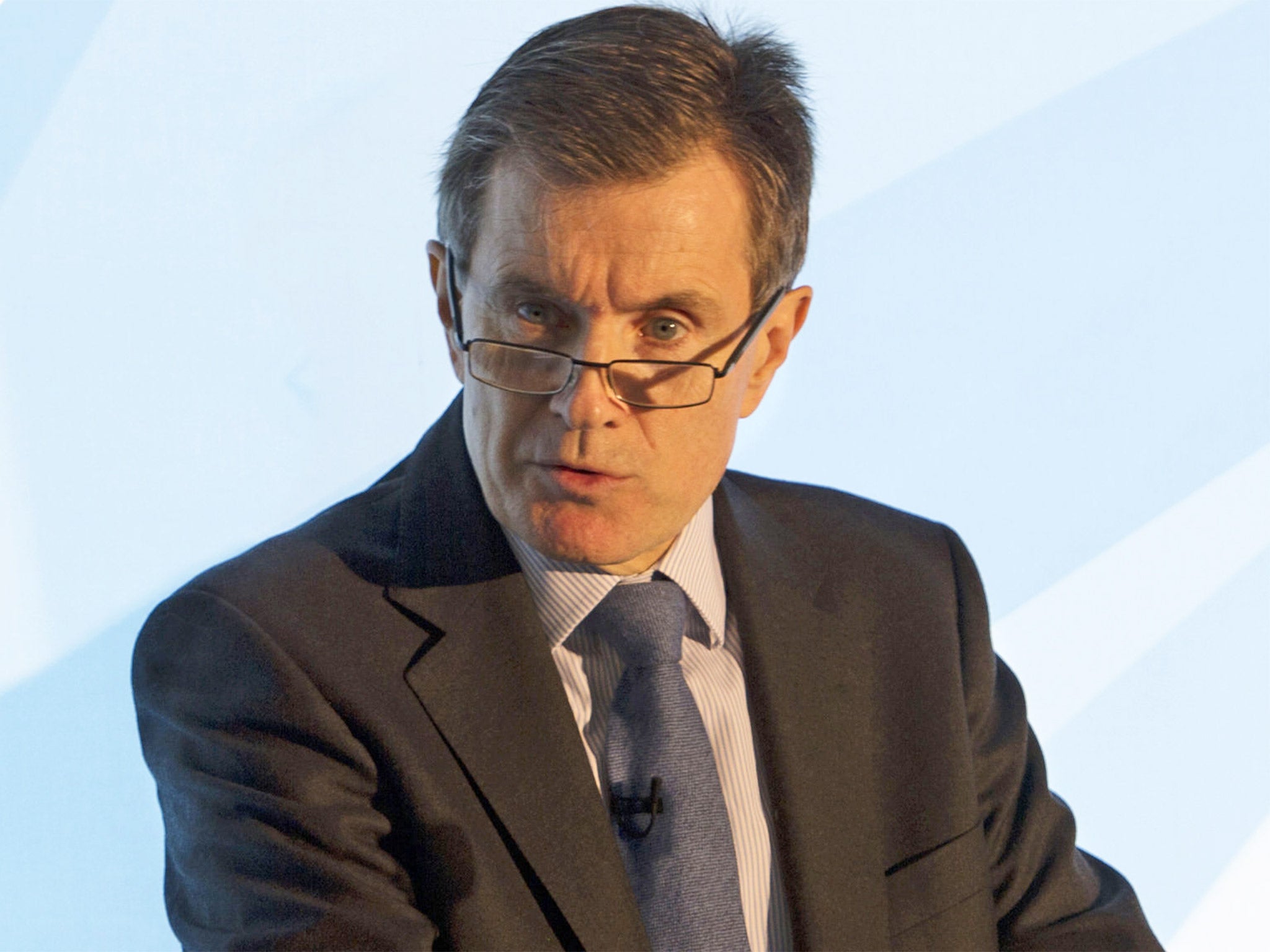Charlie Hebdo: Publishing cartoon of prophet Mohammed was an act of provocation, says ex head of MI6
'I rather agree with the Pope…. that respect for others peoples’ religion is an important part of this'

Your support helps us to tell the story
From reproductive rights to climate change to Big Tech, The Independent is on the ground when the story is developing. Whether it's investigating the financials of Elon Musk's pro-Trump PAC or producing our latest documentary, 'The A Word', which shines a light on the American women fighting for reproductive rights, we know how important it is to parse out the facts from the messaging.
At such a critical moment in US history, we need reporters on the ground. Your donation allows us to keep sending journalists to speak to both sides of the story.
The Independent is trusted by Americans across the entire political spectrum. And unlike many other quality news outlets, we choose not to lock Americans out of our reporting and analysis with paywalls. We believe quality journalism should be available to everyone, paid for by those who can afford it.
Your support makes all the difference.The publishing of the Charlie Hebdo cartoons of the Muslim prophet Mohammed was an act of provocation, showing a lack of respect of other peoples’ religion in the West and the backlash which came should have been expected, the recently departed head of MI6 has stated.
In his first public appearance since standing down from the post of ‘C’ Sir John Sawers declared his support for Pope Francis who had spoken out against “provocateurs” on religious matters and warned that they can expect violence in return.
Sir John wanted to stress that the 12 murders which resulted from the attack on the offices of the satirical magazine “cannot be justified on any basis whatsoever”. But he argued: “there is a requirement for some restraint on the side of those of us in the West. I rather agree with the Pope…. that respect for others peoples’ religion is an important part of this. If you show disrespect of others’ core values then you are going to provoke an angry response.”
Acts inflaming some sections of the Muslim population came at a time when attacks on the West were highly likely mainly due to the sheer numbers of young Muslims from the West who had gone to take part in jihad in Syria and Iraq.
“The formal threat level has gone up which says a terrorist attack is highly. That is not saying an attempted terrorist attack is likely, it is saying a terrorist attack is getting through is highly likely”, said Sir John.
“If I was to sit here and say, will the goalkeepers of the security services and the police keep every single attempt to get the ball into the net out? No, at some point these threats will get through and there will be another terrorist attack in this country.”
Speaking at the launch of a survey of international attitudes on trust at the offices of the PR firm Edelman in London, Sir John warned about how public confidence in intelligence services depended on the actions they undertook.
According to research by the company, MI5 and MI6 scored 72 per cent and 64 per cent respectively from the public on trust. The FBI and the CIA, on the other hand, were rated around 40 per cent by the British public. Sir John held that the CIA’s involvement in targeted killings had counted against the organisation.
“One of the problems for the CIA has been that it has become involved in lethal operations and that has muddied some of the work of the intelligence agencies,” said the former MI6 chief.
“We have been very clear that our role was to produce intelligence. Of course we support the military. If there is any kinetic operation to be done, it is done by the military under military authorisation, not done within the intelligence world. I think people understand and respect that …”
However, there is also public apprehension about “snooping” by the government. Sir John acknowledged the concern and called for a new compact between the Internet companies and the security agencies which would reassure the public but also allow surveillance to combat terrorism.
“Of course there is a dilemma here because the general public and politicians and the technology companies … they want us to be able to monitor the activities of terrorists and other evildoers but they do not want their own activities to be open to any such monitoring.
“We have to find a way as a society whereby the technology companies and those responsible for the security of our society can work together so that the interests of both can be met with limited compromise. I don’t this is a trade-off between security and privacy, I think they go together.”
Join our commenting forum
Join thought-provoking conversations, follow other Independent readers and see their replies
Comments